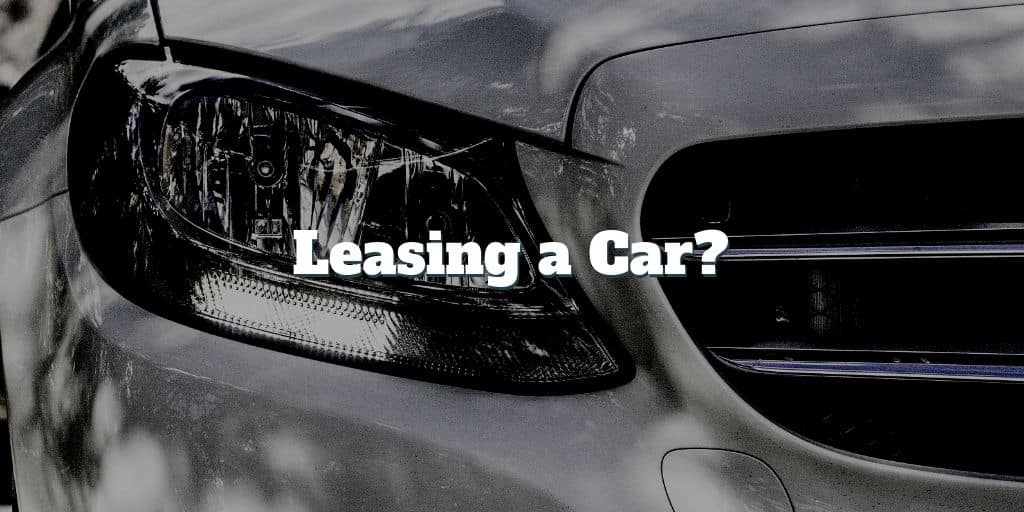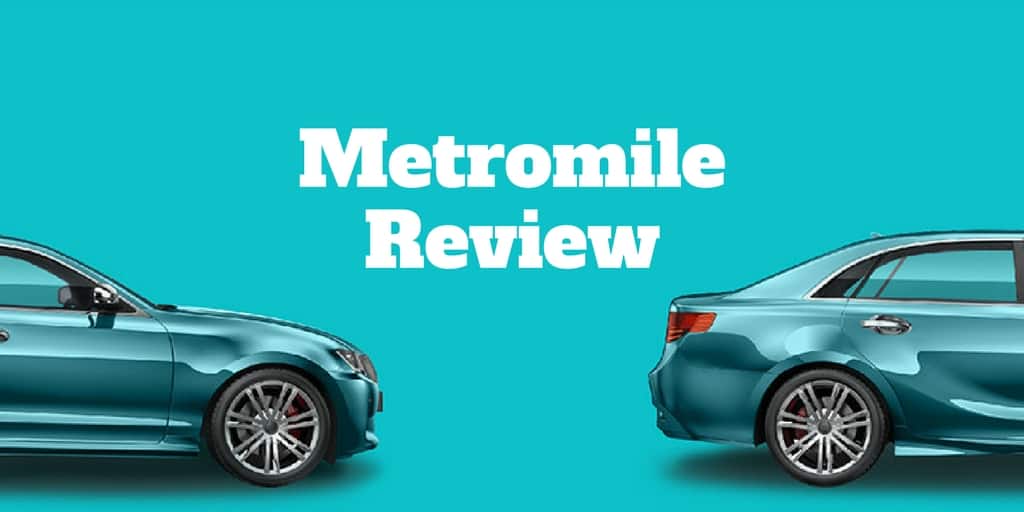
What You Need To Know When Leasing A Car: Car ownership has always been a big deal, particularly in the United States.
You may have gotten your first vehicle when you were in your teens and not been without one since. In recent years, this dynamic has shifted somewhat. For many drivers, leasing a vehicle has become more attractive than buying a new car.
In fact, nearly 1/3 of new-car transactions are now leases. Before choosing to go this route with your next vehicle, you need to understand some basic facts about the process.
You gain a number of benefits from leasing, but you do lose some control.
Auto Leasing Basics
When you lease a car, you agree to make monthly payments, usually for a three-year term. The most common options are 36 months, 48 months and 60 months.
You are then able to leave the lot in a brand new vehicle with the prospect of obtaining another brand new ride after three, four or five years respectively.
While you do not own the vehicle, you will have the same responsibilities that you do when you purchase a car. You will have to pay for maintenance, insurance, licensing, and registration.
At the end of the lease, you may simply turn in your ride and start the process over again. In fact, you may decide that you never want to own a car again.
Not ready to lease? Prefer to buy – lock in great rates with LendingClub Auto Loans.
| LENDINGCLUB AUTO LOANS SPOTLIGHT | |
Investormint Rating 4 out of 5 stars |
via LendingClub secure site |
Biden's not holding back... He's warned you that he plans to raise: Income taxes, death taxes, capital gains taxes & corporate taxes. Some or all of which WILL affect you or your family in one way or another... But it's not too late... yet.
Thousands of Americans are getting their FREE IRS LOOPHOLE KIT to discover the secret to protecting your retirement savings from Biden, and inflation...
CLICK HERE to request a FREE Copy of the Guide To IRS Loopholes For Your IRA/401(k)
Benefits Of Leasing A Car
Purchasing a new car is never cheap. Most banks or financing companies want a 10% down payment in order to finance a car.
With today’s new cars often costing $30,000 or more, that means you have to come up with a chunk of change, particularly if you do not have a vehicle to trade in.

On the other hand by choosing a lease, you generally need either no downpayment or a small one. This benefit alone entices a number of people to lease instead of buy.
Years of monthly payments can really beat up your budget.
>> Budget Better with Acorns & Personal Capital
| ACORNS SPOTLIGHT | |
 InvestorMint Rating 4.5 out of 5 stars |
via Acorns secure site |
Happily, these payments are also lower when you lease. After all, you are only paying to use the car for a relatively short period of time. You can end up paying hundreds less per month using this method.
Lower maintenance costs are another great advantage. With a three-year lease, the manufacturer’s warranty will take care of any major repairs.

And because the vehicle is new, you should not face many small issues either. You won’t have to worry about the transmission going out or the power steering failing.
If you are a car lover, leasing allows you to experience the latest designs and technology that auto manufacturers offer. Each year’s new models outdo the previous seasons. With leasing, you can always be the cool kid on the block. Plus, you’ll be able to enjoy the latest safety enhancements.
Finally, if you drive to work, you may be able to deduct some of your leasing costs on your taxes. You cannot do that with car loan interest.
Finally released to the public, trading guru Dave Aquino's guide, "The Options Trading Accelerator Method", reveals how Wall Street's big lie has stopped traders with small accounts from reaching their full potential and how his student favorite trading method could change that!
Click here to keep reading…
Car Leasing Restrictions You Need To Know
Leasing is not the answer for those people who want to be in charge of their own vehicle. Since you don’t own the car, you have to follow the company rules.
If you are a car slob, leasing may not be for you. The dealership will charge you for damage to the auto when you return it. So if you stain or rip the seats, ruin the carpet or otherwise mar the interior or exterior, you may have to pay extra for the damage.
Long-distance drivers may not be a good fit for leasing. The average driver puts about 12,000 miles on their car each year. When you lease, that’s the mileage that you are allowed. If you exceed it, you’ll have to pay for the extra travel.
By the way if you drive less than average, and want to save money on car insurance, check out Metromile, a pay-per-mile car insurance option that can save you a lot compared to traditional auto insurance options.
If you lease, you need to remember that you will not have a trade-in when it’s time to get a new vehicle. That means your second lease may cost you more each month.
➤ Free Guide: 5 Ways To Automate Your Retirement
Recommendations When Leasing A Car
Here’s what you need to know when leasing a car. Since you are paying for a vehicle’s depreciation when you lease, you can save money by choosing a car that keeps its value.
Vehicles like the Toyota 4Runner are still worth around 70% of their sticker price after three years, so you pay less to lease them each month than you would other models. Other good automakers that have what is called a “high residual value” include Subaru and Porsche.
Experts recommend that you put something down on your lease even if you don’t have to in order to keep your monthly payments down. The amount should be a modest one, however, since you will not own the car.
When you decide to lease, make certain that your contract contains gap insurance. If you are in an accident that truly wrecks the car, you could be in trouble. You will be on the hook for a lot of money if you don’t have insurance that covers the difference between what your regular insurer will pay and the balance of the lease.
Leasing a car may be your best choice, particularly if you like low monthly payments and new technology. You can get a good deal without being a champion bargainer, and you can relax about potential mechanical problems.
Of course, if you want to travel across the country with two dogs and three kids, you may be better off buying a new car or SUV. You need to choose the option that best suits your lifestyle.
Tips When Leasing A Car
When it comes time to sign your lease, keep an eagle eye out for some additional profit-generating items for the dealership.
The Capitalized Cost or “cap cost” is dealership jargon that translates to the agreed upon sales price of the car plus fees. Don’t make the mistake of accepting the MSRP price on a lease – you can and should negotiate it, and when you do your monthly lease amount will be lower.
Depreciation and Residual are two other terms to pay focus on carefully as they significantly affect your payments too. What you want is a car with low depreciation and a high residual value.

Depreciation refers to how much value the car loses over time. Often cars will lose as much as half their value over the timespan of a 36 month lease. But some cars, like Volvos and Subarus typically depreciate less – thanks in part to their high safety ratings.
Target a car with a high residual value because your lease payments will reflect the difference between the Capitalized Cost and the Residual Value. If the car is worth a lot at the end of the lease, the Residual Value will be high and you’ll enjoy lower car payments.
Other profit-making fees to not overlook include the lease acquisition fee, lease return fee or disposition fee, and lease protection.
The lease acquisition fee simply refers to the revenue the dealership earns by arranging the lease.
You can think of the disposition fee as a way for the dealer to lock you into their brand of automobile. If you continue with a new lease at the end of the term, many automakers will waive this fee.
Lease protection is offered by some brands in case you do ding or scratch your car. The terms of this coverage should be inspected carefully so you understand precisely what is and what is not covered.
>> Find Out How To Trade In Your Car
During and after the Great Financial Crisis of 2008, 485 U.S. banks went under. Here at Weiss Ratings, we warned about 484 — an accuracy rate of 99.8%. Now, we have a new warning. But this time, it's not just about a few hundred banks … it's about nearly every single bank in America …
Get all the details here










